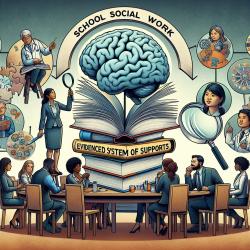Hearing loss can significantly impact a child's development, and understanding its causes is crucial for effective intervention. A recent review, "Viral Causes of Hearing Loss: A Review for Hearing Health Professionals," highlights the importance of recognizing viral infections as potential causes of hearing loss. This blog will summarize key findings and practical applications from the research to help practitioners improve their skills and outcomes for children.
Key Findings from the Research
The review identifies several viruses that can cause congenital or acquired hearing loss, including:
- Cytomegalovirus (CMV): The leading non-genetic cause of childhood sensorineural hearing loss (SNHL). Early antiviral treatment can prevent progression.
- Rubella: Causes bilateral SNHL in infants when mothers contract the virus during pregnancy. Vaccination is highly effective in prevention.
- Herpes Simplex Virus (HSV): Both HSV-1 and HSV-2 can cause hearing loss, particularly in neonates exposed during birth.
- Human Immunodeficiency Virus (HIV): Can lead to conductive, sensorineural, or mixed hearing loss due to opportunistic infections or ototoxic medications.
- Varicella Zoster Virus (VZV): Causes Ramsay Hunt Syndrome, which can lead to SNHL. Early treatment with antivirals and corticosteroids is crucial.
- Lymphocytic Choriomeningitis Virus (LCMV): An emerging teratogen that can cause severe SNHL in infants.
Practical Applications for Practitioners
Implementing the findings from this research can improve patient outcomes. Here are some practical steps:
- Early Detection and Screening: Regular hearing screenings for children, especially those with a history of maternal viral infections, can help in early identification and intervention.
- Vaccination Advocacy: Encourage vaccination against rubella, measles, mumps, and varicella to prevent congenital and acquired hearing loss.
- Antiviral Treatments: For confirmed cases of CMV or HSV-related hearing loss, early antiviral treatment can prevent progression and improve outcomes.
- Educate Parents: Inform parents about the potential risks of viral infections and the importance of timely medical interventions.
Encouraging Further Research
While this review provides valuable insights, further research is essential to understand the full impact of viral infections on hearing loss. Practitioners are encouraged to stay updated with the latest research and contribute to ongoing studies.
To read the original research paper, please follow this link: Viral Causes of Hearing Loss: A Review for Hearing Health Professionals.










